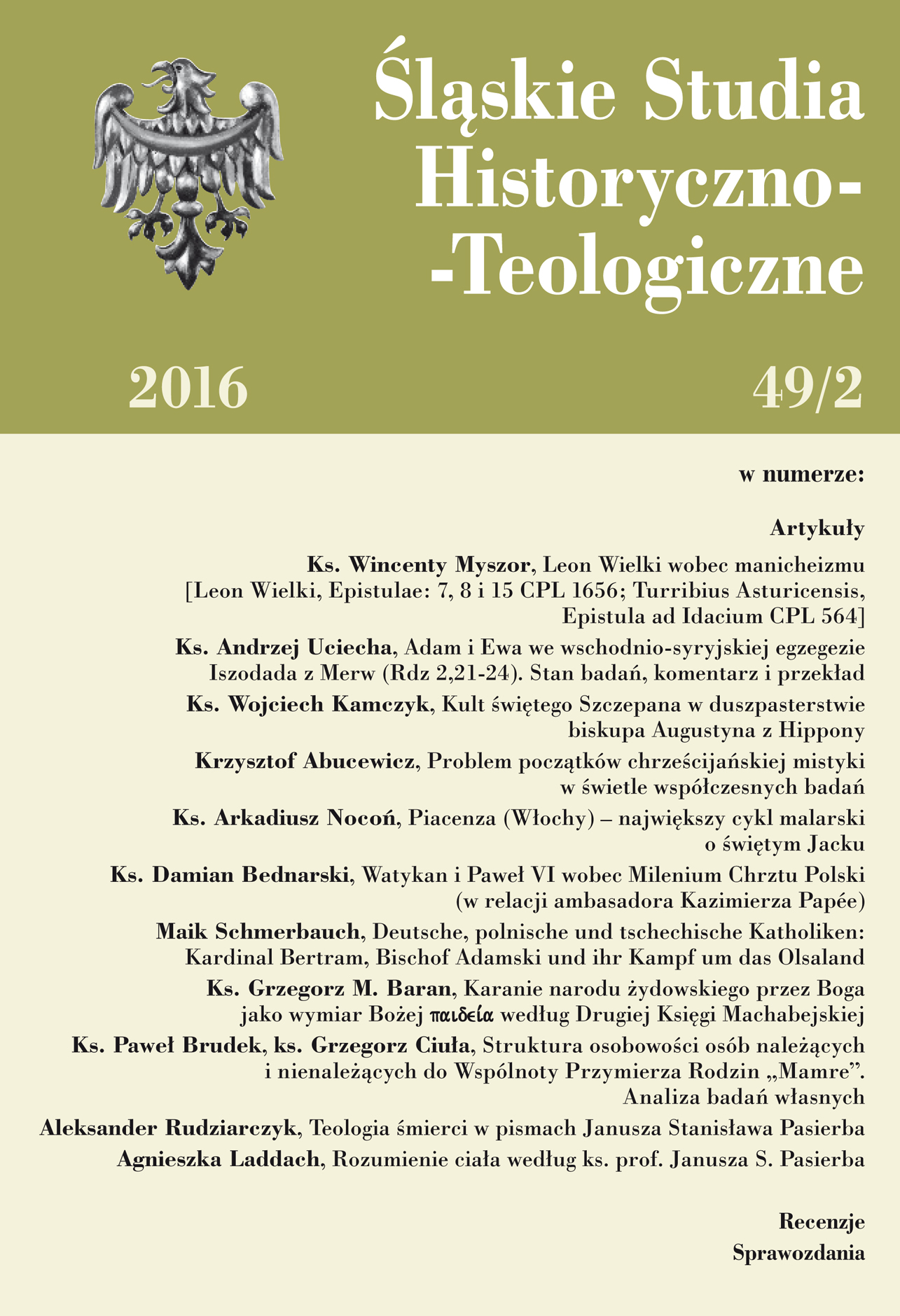Struktura osobowości osób należących i nienależących do Wspólnoty Przymierza Rodzin „Mamre”. Analiza badań własnych
Personality Structure of Members and Non-Members of the Families Covenant Community “Mamre”. Analysis of Own Research
Author(s): Grzegorz Ciuła, Paweł BrudekSubject(s): Christian Theology and Religion, Theology and Religion, Systematic Theology, Pastoral Theology
Published by: Księgarnia Świętego Jacka
Keywords: new religious movements; Families Covenant Community “Mamre”; personality traits
Summary/Abstract: Purpose of research. The article presents results of the research done by the Authors. The study involved 122 people. The main purpose of this research was to identify the differences between members of the Families Covenant Community “Mamre” (n=55) and people, who aren’t members of any religious movement (n=67) in the field of personality traits. Methods. In t he s cientific work presented above, the Authors used: (1) NEO Five-Factor-Inventory by P. Costa and R. McCrae in polish adaptation of B. Zawadzki, J. Strelau, P. Szczepaniak and M. Śliwińska; (2) Personal Form. Results. Respondents who are members of the Families Covenant Community “Mamre” and those, who aren’t members of any religious movement differ in the Neuroticism and the Conscientiousness, whereas no statistically substantial difference was found within the Extraversion, the Openess and the Agreeableness. The individuals related with the Community are characterized by higher level of the Neuroticism and lower intensity of the Conscientiousness than non-members of any religious movement. Conclusions. Received results can provide valuable support for chaplains and leaders of the Families Covenant Community “Mamre” in determining the nature and directions of the formation acts in relation to people declaring will to join the Community.
Journal: Śląskie Studia Historyczno-Teologiczne
- Issue Year: 49/2016
- Issue No: 2
- Page Range: 430-444
- Page Count: 15
- Language: Polish

